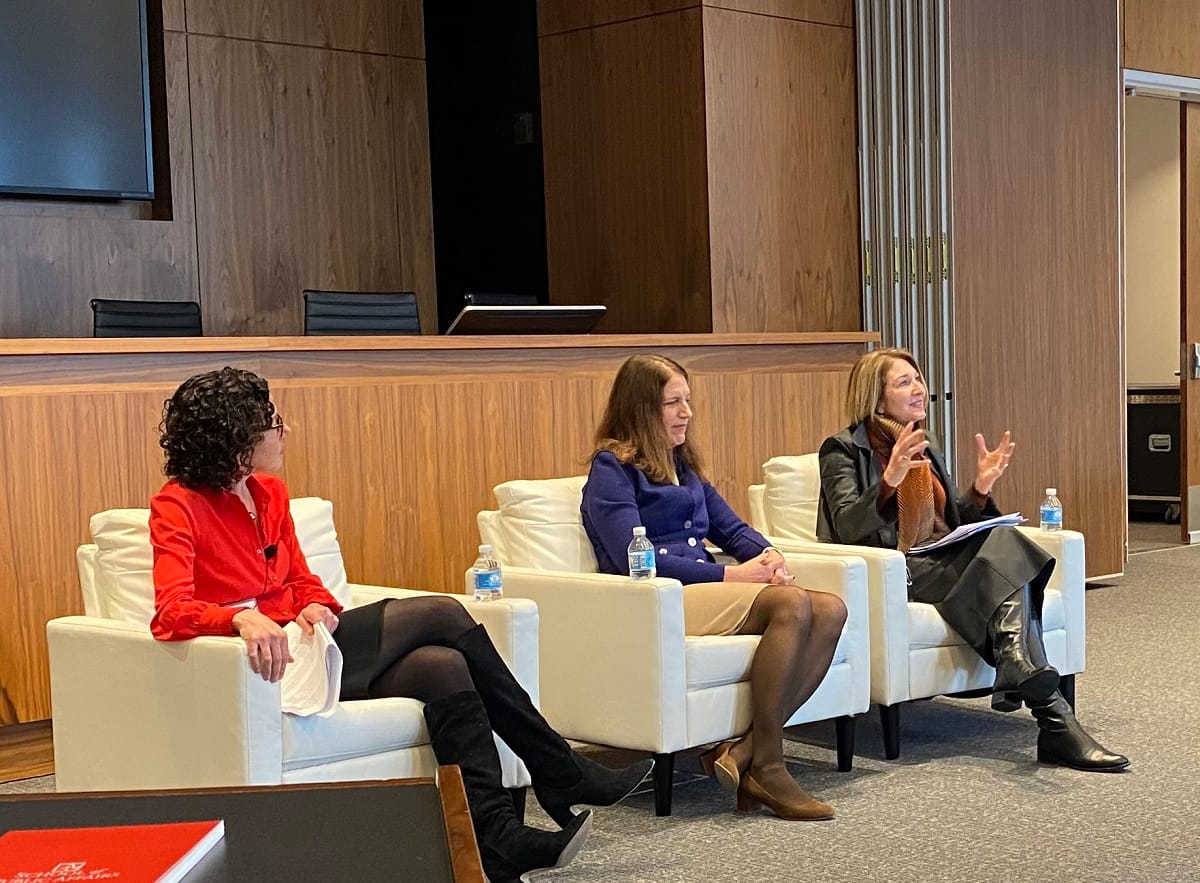American University President and New America CEO Seek to Clip Edges of America’s Free Speech ‘Absolutism’
WASHINGTON, February 25, 2020 – Two high-profile panelists, including the president of American University and the CEO of the New America think tank, took issue with America’s free-wheeling freedom of speech tradition at a Monday event. American University President Sylvia M. Burwell and New America

WASHINGTON, February 25, 2020 – Two high-profile panelists, including the president of American University and the CEO of the New America think tank, took issue with America’s free-wheeling freedom of speech tradition at a Monday event.
American University President Sylvia M. Burwell and New America CEO Anne-Marie Slaughter grappled with the negative consequences of technology and the strain created by freedom of speech at the university’s Washington College of Law. Burwell suggested that along with the negative effects of internet usage, American values are at stake, showing that harmful internet speech is “embedded in the larger issues.”
Slaughter said that companies are now the face of American values and they are not “universally favored.”
Although both panelists agreed that freedom of expression is crucial to the United States’ democracy, technology has drastically changed the landscape of free speech.
There are “four things that change the dynamic” of freedom of expression through technology: speed, amplification, removal of nuance, and speed of response, said Burwell.
Burwell said that there is a need for better education, something she is trying to implement on the American University campus through specific courses.
Burwell said that students need to get the “facts before [they] use [their] voice”—thereby fostering civil discourse instead of disinformation.
At this point, this isn’t a “cut and dry free speech issue,” said Slaughter.
Slaughter said that America’s “absolutist free speech tradition” no longer holds in this new technological terrain.
When asked by the audience what greater accountability for tech companies might look like, Slaughter said that the United States needs a “legal framework.” Burwell agreed that the U.S. needs a new “legal and policy construct.”
Facebook is the “largest country in the world,” said Slaughter. The U.S. needs to recognize that Facebook occupies public and private sectors, said Slaughter.
The moderator asked how the panelists can distinguish between novel situations brought about by tech and patterned consequences from innovation. Slaughter said the creation of new technology and the realization that it has harmful consequences is not new, like the role of technology in World War I mass killing, said Slaughter.
What is new is the lack of personalization, “particularly in a world where there is less community than ever before,” stated Slaughter.
However, other panelists at the event argued that “obnoxious” speech is not unprecedented in America.
For example, American University School of Communication Professor W. Joseph Campbell argued that “obnoxious speech” can be traced back through American history.
Campbell said the close of the 19th century was the “proto-twitter” world. He said he does not consider the age of harsh political rhetoric unique to the 21st century.
University of British Columbia Assistant Professor Heidi Tworek said she notices a “nostalgia” for the eras “before the internet.” From a history perspective, Tworek said the past also exhibits stretched boundaries of free speech; this isn’t a modern phenomenon.
“The present can sometimes catch up with history,” argued Tworek.










